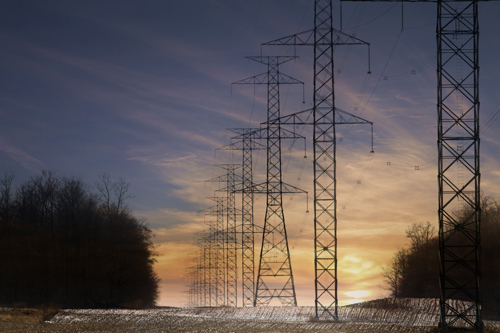Don’t be caught with your power down… be prepared with an alternative power plan
Most power outages are short-lived, but some can last much longer - up to days or even weeks. Power outages are often caused by freezing rain, sleet storms, and/or high winds which damage power lines and equipment. Cold snaps or heat waves can also overload the electric power system.
During a power outage, you can lose your heating/air conditioning, lighting, hot water, and even running water. Cordless phones won’t work and if your electronics aren’t fully charged or you don’t have a battery-powered or crank radio, you may have no way of monitoring news broadcasts.
Outage Information
Hydro One
ERTH Power
Tillsonburg Hydro
After a power outage
Give the electrical system a chance to stabilize before reconnecting tools and appliances. Turn the heating-system thermostats up first, in a couple of minutes reconnect the fridge and freezer. Wait 10 to 15 minutes before reconnecting all other tools and appliances.
Food Safety
When in doubt, throw it out!
- Freezing stops the growth of bacteria.
- A full freezer will keep food frozen for about 48 hours.
- A freezer that is half full will keep food frozen for about 24 hours.
- An unopened refrigerator will keep food cold for about 4 hours.

General Tips:
- Never use barbecues, camping heating equipment or generators indoors. They give off carbon monoxide. Because you can't smell or see it, carbon monoxide can cause health problems and is life-threatening.
- Fill plastic containers with water and place them in the refrigerator and freezer if there's room. Leave about an inch of space inside each one, because water expands as it freezes. Chilled or frozen water will help keep food cold during a temporary power outage, by displacing air that can warm up quickly with water or ice that keeps cold for several hours without additional refrigeration.
- Do not open the fridge or freezer unless absolutely necessary, in order to maintain the cold temperature.
- Be aware that most medication that requires refrigeration can be kept in a closed refrigerator for several hours without a problem. If unsure, check with your physician or pharmacist.
- Keep your car tank at least half full because gas stations rely on electricity to power their pumps.
- Know where the manual release lever of your electric garage door opener is located and how to operate it. Garage doors can be heavy, so know that you may need help in lifting it.
- Keep a key to your house with you if you regularly use the garage as the primary means of entering your home, in case the garage door will not open.
- Turn off all tools, appliances, and electronic equipment, and turn the thermostat(s) for the home heating system down to a minimum to prevent damage from a power surge when power is restored.
- Turn off all lights, except one inside and one outside, so that both you and the hydro crews outside know that power has been restored.
- Avoid downed power lines, if a power line falls on your car, stay inside the vehicle!
